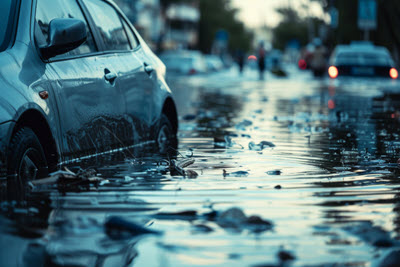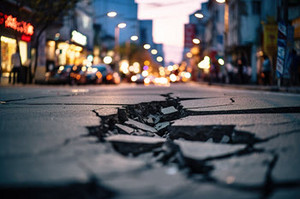Natural disasters: Are you covered?
In Quebec and Canada, natural disasters such as floods and forest fires are becoming more frequent and costly. Canada-wide, severe weather events caused over $3.1 billion in insured damage (Insurance Bureau of Canada (IBC)). Do you know what your home insurance will cover in the event of a natural disaster?
Floods
Damage caused by overflow from a watercourse is not covered by your basic home insurance contract. Some insurers will propose an endorsement (a rider to your insurance contract) to cover this risk. However, they will not offer it to you if you live in a flood-prone area.
Many people look to government for emergency financial assistance when floods occur, but such assistance is not guaranteed and very often limited. You should check whether your insurer can provide coverage for damage caused by overflow from a watercourse before such an event occurs.
In either case, it is advisable to take some basic precautions:
- Maintain a personal emergency fund to help cover unexpected costs related to a disaster.
- In the event of a flood, take steps to limit any possible damage.
Is your home in a flood-prone area?
Québec’s ministry responsible for the environment, the fight against climate change, wildlife and parks has prepared an interactive map This link will open in a new window you can use to find out if you are in a flood-prone area. You should also check with your municipality or regional county municipality (MRC).

If your car has been damaged by water, this damage is covered by your car insurance if you have “All perils”, “All perils other than collision or upset” or “Specific perils” coverage. You can check your coverage with your rep or insurer.
Earthquakes

The risk of an earthquake occurring in Québec is very real. However, according to IBC, 33% of Quebeckers mistakenly believe that their basic home insurance protects them against this risk when, in fact, only 4% have appropriate coverage.
According to Natural Resources Canada, there is a 5 to 15 per cent chance that an earthquake strong enough to cause significant damage will occur in the next 50 years in the Québec City-Montréal-Ottawa corridor, home to more than 75% of Québec’s population.
This risk is not covered by your basic home insurance contract. Most insurers offer additional coverage in the form of an endorsement (a rider to your insurance contract). Check what is covered by the endorsement and the applicable coverage amounts, exclusions and deductibles to make sure everything is suited to your budget and risk tolerance, as required.
Insurance contracts usually cover fire, explosion or smoke damage resulting from an earthquake.
Governments may provide emergency financial assistance in the event of a major earthquake, but such assistance is not guaranteed and very likely limited.
Windstorms, hail and lightning
Most basic insurance contracts cover you for damage caused by a windstorm, hail or lightning. Pay particular attention to the limitations and exclusions for damage to trees and outdoor growing plants and to the amount of your deductible.
Forest fires
Forest fires can cause substantial damage to homes that are located near fire zones. All home insurance policies provide fire coverage.
You may also be entitled to an indemnity if you need to find temporary accommodation when your home sustains damage covered by your contract or the public authorities issue an evacuation order.
Do you have questions about your home insurance?
Contact the AMF Information Centre.
End of the Information